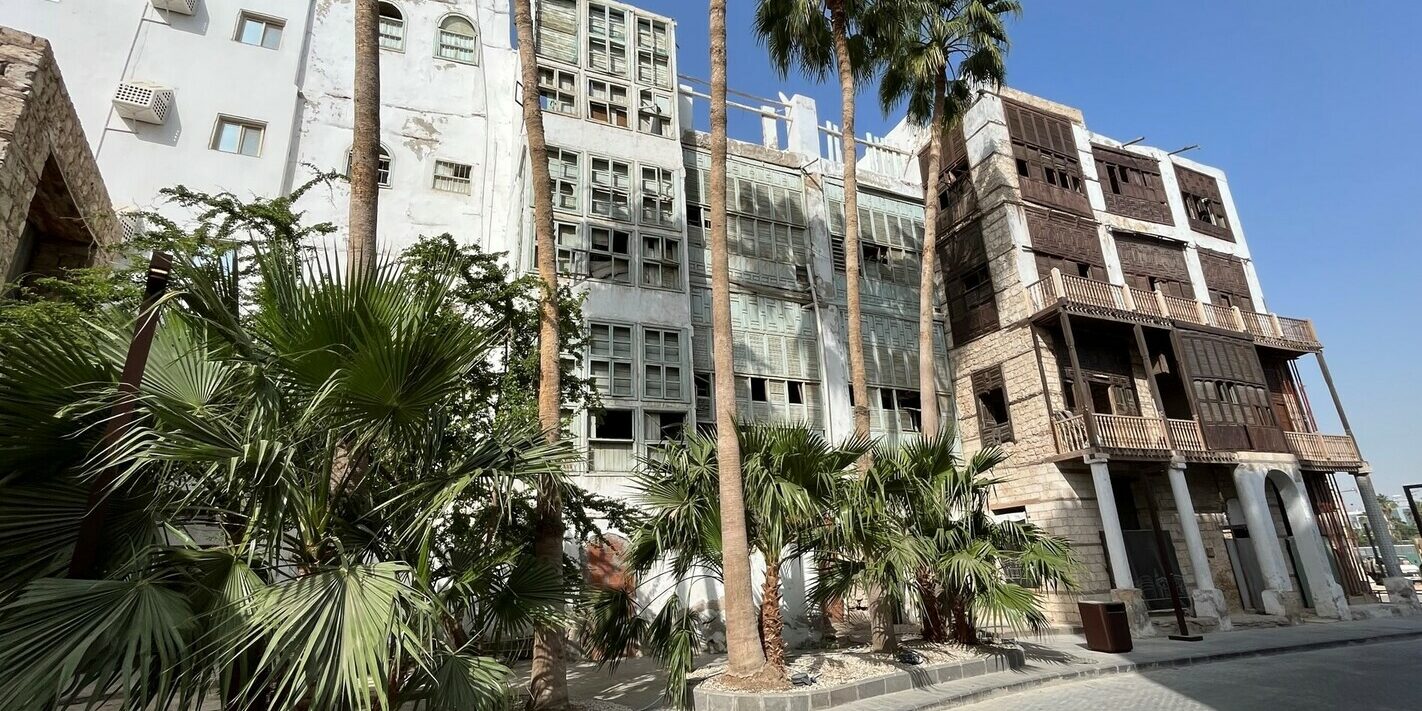Last February we visited the city of Jeddah in Saudi Arabia, a city that in 2014 requested that UNESCO consider its historic center (Al-Badad) a universal heritage site. In order to qualify, UNESCO had certain requirements for approving the application.
Among these requirements was a Risk Analysis of the Al-Badad Historic Center, which we conducted personally.
The Risk Analysis is based on a study of the potential risks (floods, fires, sandstorms, etc.) that can occur in or around Jeddah’s historic center and could have a negative impact on the population, the environment, and its heritage.




Climate change is currently affecting all regions of the world. Recently, rainfall has been occurring less frequently but with greater intensity, causing worse consequences in the Jeddah area. An example: the severe floods that occurred in Jeddah in 2009 and the rains of November 2022
The objective of the study is:
- To determine which risks may have the greatest impact.
- To identify the most vulnerable areas and/or buildings depending on the risk.
- To define what preventive measures have been adopted to address these risks.
- To define the people and organizations that will act in the event of an emergency.
- How each emergency is managed depending on the risk.
The historic center is currently undergoing reconstruction and renovation of various spaces and buildings to orient the area toward tourism (it is a mandatory stopover area for the pilgrimage to Mecca), as the functioning buildings are generally used as shops, cafes, and government offices. The area is also expected to be open for celebrations and possible guided tours by tourists and must therefore be prepared to accommodate a large number of people.
The purpose of the trip was to exchange experiences with the staff of the Health, Safety, Security and Environment (HSSE) Department of the Ministry of Culture, in order to gain information on the organization and operation of the area in the event of an emergency. Its future objective is to fully manage all business activity permits (preventive) and emergency response processes (reactive) within the historic area of Al-Balad. In addition, request information to conduct risk analysis studies.
Climate change is changing the risks that populations in certain areas are accustomed to. This implies re-evaluating them and, above all, raising awareness and training the population about these new risks that may arise.



